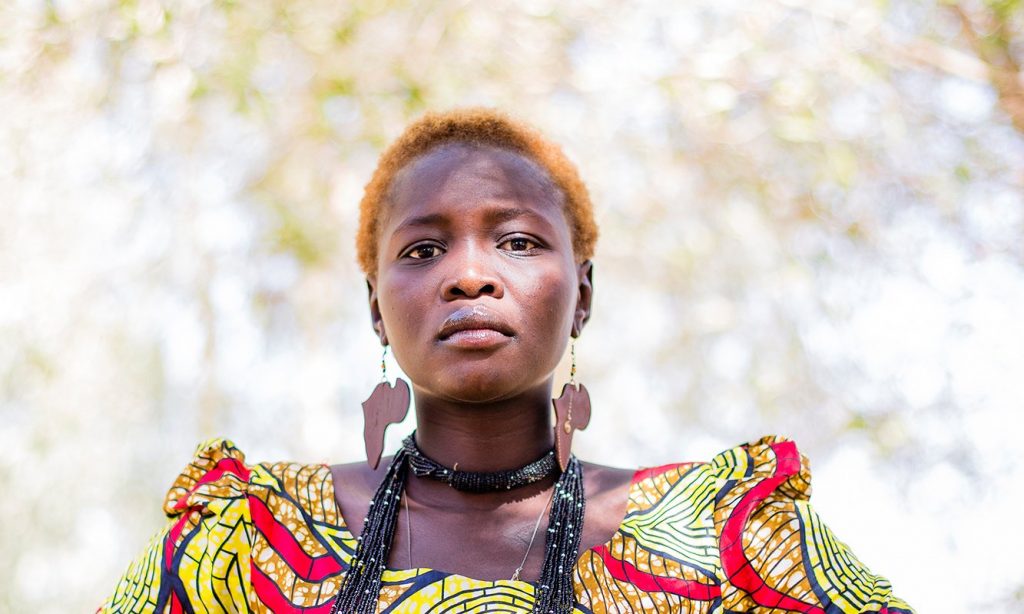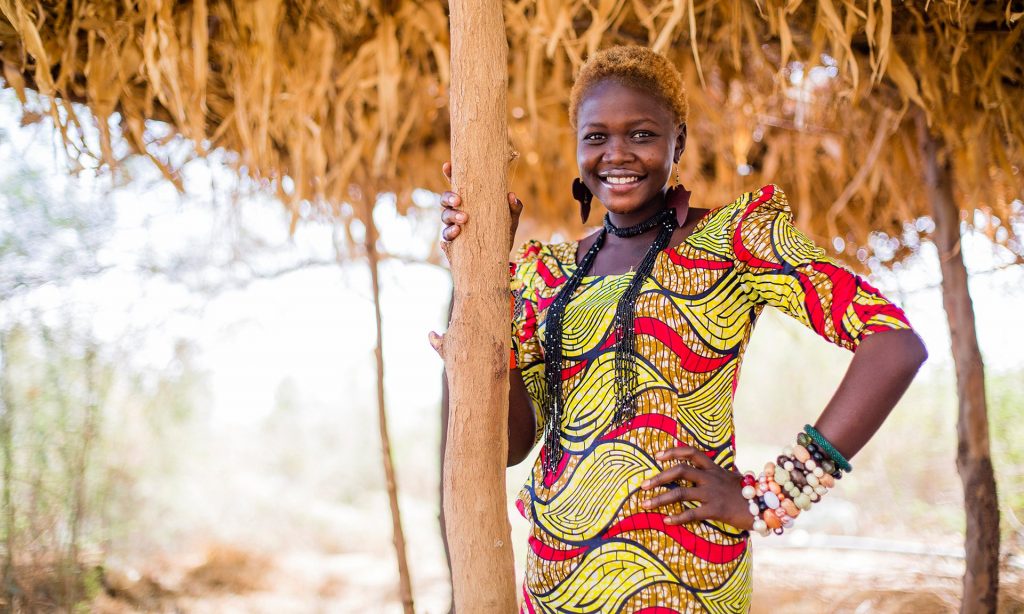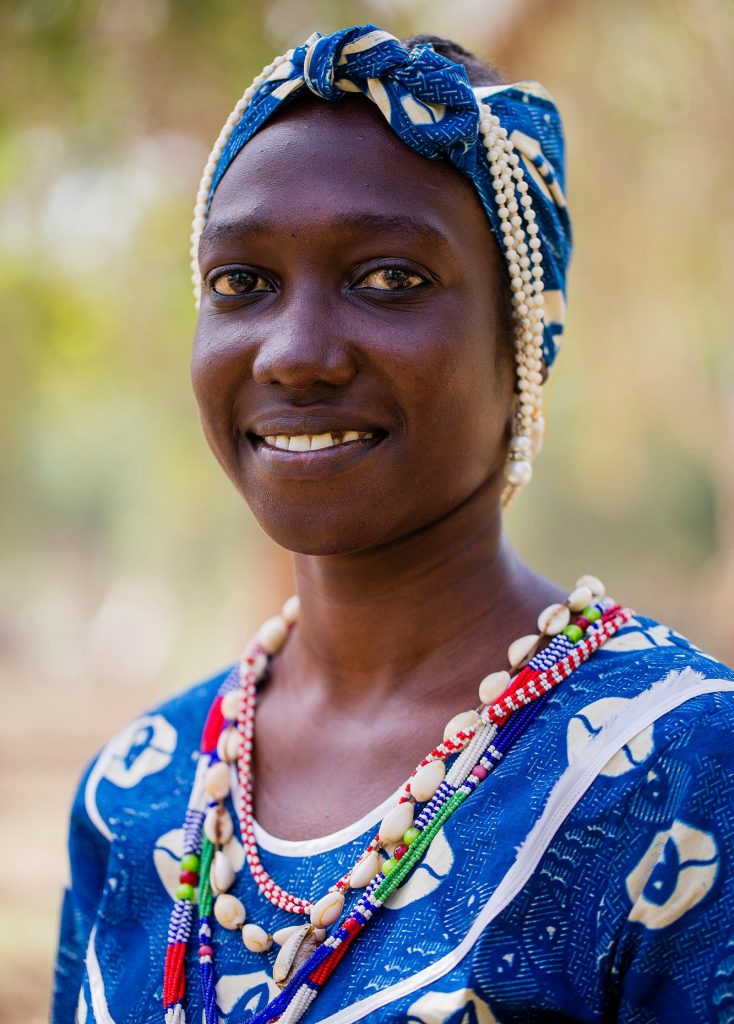
Photograph: Ala Kheir/Elephant Media
Far from the cliched calls for world peace, Sudanese beauty queen Natalina Yaqoub’s mission is a little closer to home.
Since being crowned Miss Nuba Mountains, she has used her title to appeal to the government for an urgent end to the bombing in the region, where her family still lives.
“My home is in the heart of the conflict. I have to say something because I have a platform and my people are depending on me,” said the 23-year-old, who competed with 25 other contestants to the title.
The Nuba mountains in the state of South Kordofan have been subjected to a bloody counter-insurgency campaign since fighting broke out in June 2011.
Sudan’s government says it is engaged in aerial strikes against rebels seeking refuge in the mountain villages. Rights groups, however, say that the indiscriminate bombing is resulting in mass civilian death, with the number of recorded bombs dropped approaching 4,000.
Yaqoub said: “I’ve told our politicians and ministers that we want peace. Our mothers and sisters are being killed and raped. Yes, we are safe in [the capital] Khartoum but we suffer so long as our families back home suffer.”
Yaqoub was crowned beauty queen at the Nuba Cultural Heritage festival in 2014 and uses her fluency in Arabic, English and her Nuban mother tongue to lobby politicians. In December 2014 she delivered Nuba’s first TEDx talk. Her reign was extended last year by the pageant panel, who felt she needed more time to spread her message.
A central part of her work, and the guiding idea behind the pageant itself, is to undermine president Omar al-Bashir’s ethnic and cultural rhetoric, seen at its most divisive in his ongoing “Arabisation” programme, which has seen non-Arab tribes alienated and disenfranchised.
As a result, the Nuba people have become increasingly excluded from what is considered a national Sudanese identity, with little representation in the government.
Since its inception, the shortlisted candidates for the Nuba Beauty Queen title must complete a gruelling selection process. Guidelines dictate that they must be cultured, multilingual and prepare a written thesis on their home region.
Most importantly, they must not make use of popular skin-whitening creams.

The condemnation of dark skin in Sudanese society and its association with an unwanted “African” appearance has driven a large majority of the country’s women to bleach their skin. In 2000, the dermatology section of the Khartoum hospital was pushed to open a “bio-clear” ward to treat the swathes of patients suffering from severe burns due to their use of whitening creams.
“There is a heavy culture of racism here. The television spews these messages from morning to night – a constant reminder of our [Nuba] exclusion,” said Noha Mahdi, a 24-year-old beauty queen candidate competing to be Yaqoub’s successor.
“I am Sudanese, in my identity, my character and my appearance. It should not be my problem that my country has become Arabised. At the end of the day Sudan is an African country, the people that are from here – in all of their colours, shapes and sizes – are still Sudanese.”
Ahmed Elyass, a professor of history at the University of Khartoum, said Yaqoub’s position and visibility is crucial in a country that has a fundamental “misunderstanding about our culture, history and community”.
He added: “The Nuba played a huge role in ancient Sudanese kingdoms along the Nile, in Napata and Merowe, and anthropologists and archaeologists that studied skeletons and cultures from all over Sudan have found that culturally, biologically, genetically and linguistically we are all very similar.”
But this notion of unity is far from the reality in Sudan. In April, Mohamed Al Sadig Wayo was shot and killed at Omdurman Ahlia university in Khartoum after being attacked by pro-government students and members of the national intelligence forces for holding a political forum with members of the Nuba Mountains Association. Three other students were wounded.
“This isn’t the first time a Nuban student at Omdurman Ahlia University was attacked,” said Mahdi.
“They do this to ensure that Nuban students are not politically vocal or active, even if it is a peaceful discussion. There is no security for us, every Nuban student feels under threat – whether they are male or female, political or apolitical.”

Photograph: Ala Kheir for the Guardian
Culture at risk
In an effort to alleviate this ongoing racial tension, the Nuba Cultural Heritage festival and its beauty pageant was established in 2011 in Omdurman. Aimed at those displaced by the war, the event was initiated to ensure that Nuban heritage would not become lost through the pressures of social assimilation in Khartoum. Inclusive of all 140 tribes from the 99 different mountains, the festival is a celebration of cultural practices that are very much at risk.
Professor Shamsoon Kafi, head of the organising committee for the festival and a senior figure at Ribat University in Khartoum, said he hoped the festival “would build a foundation for a peaceful society, breed appreciation and tolerance for different cultures in Sudan and promote social harmony.
“As Nuba, we are strong carriers of culture. I am pushing people to respect our cultural traditions by presenting it for them to enjoy.”
As Mahdi and fellow contestants Safa Tutu, Roselinda Kaka and Sabreen Abdalla compete for this year’s title, they all echo a need for their heritage to make a mark on the Sudanese cultural landscape.
“Everyone and everything has beauty. It is the community that plants seeds of doubt, making us feel like we can’t look a certain way and still be beautiful,” says Yaqoub.
